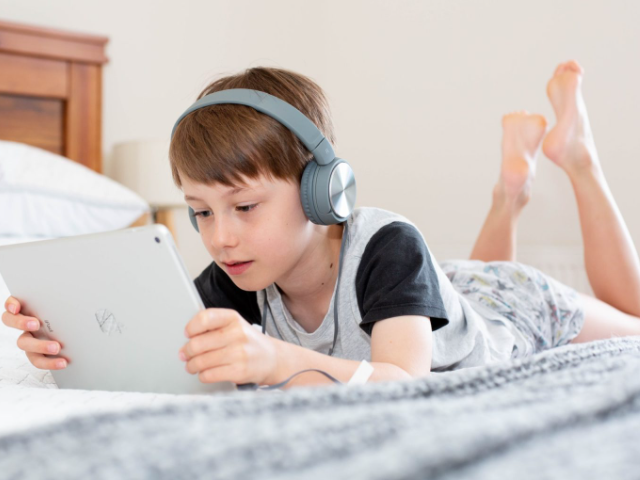One of my areas of expertise and interest is promoting healthy balance and boundaries when it comes to technology addiction. It’s a very complex topic that can be difficult to address. However, it is something that we are all affected by in some way or another. Creating a healthy relationship with screen use in our families and children is CRUCIAL to their brain development. It is also crucial for learning, regulation skills, problem-solving skills, motor skills, and overall well-being. Let’s explore the ‘red flags’ for screen addiction/overuse as a starting point for anyone with concerns.
Red Flag #1: Screen Addiction causes Sleep Deprivation
A red flag is when screen addiction or overuse leads to negative changes to the sleep schedule. Screen overuse can cause dramatic changes to the chemicals in the brain that affect our sleep cycles. It can also affect many other body processes. Using screens late into the night causes changes to the amount of sleep they get.
Red Flag #2: Technology Addiction Adversely Impacts Life Occupation
Our next red flag that indicates technology addiction or overuse is when the screen/tech usage is causing interruptions in routines. This could be a dramatic change in their grades or participation at school. A sudden change in their interest in social activities may also occur. The brain release excessive amounts of the reward chemical dopamine when we play video games, use social media, and engage in interactive screen time. This can result in a decreased interest in other activities that were once fun or enjoyable to the child. Screen time becomes the only activity that releases enough dopamine to meet that chemical need in the brain. This is the exact addiction mechanism as alcohol and drug use.
Red Flag #3: Technology Addiction is Impacting Personal Hygiene
When an individual neglects personal hygiene is another indication of technology addiction. This warning sign will be more applicable for older individuals who are already expected to have those daily routines and hygiene skills mastered. Chronically forgetting to take a shower, “I just don’t have enough time to brush my teeth,” and going for 8-9 hours without eating due to not wanting to stop the screen activity are just a few potential scenarios that might occur.
Red Flag #4: Significant Dysregulation or Aggression when Devices are Removed
When the child or individual gets extremely upset when a parent or caregiver puts limits on screen time or takes the device away is a red flag. A child having a tantrum when the iPad is put away is not a big deal. However, a child melting down, conducting violence, or destroying property when screen time is stopped is a sign that things are getting out of control.
Red Flag #5: Engaging in Screen Use Longer than Wanted/Anticipated
Our final red flag for technology addiction is to engage in screen time for much longer than the person wanted or had planned to. In younger children, it’s the caregiver’s job to set screen use start and end times. In older children, teens, and adults, this may look like planning on playing a video game for 2 hours and 6 hours go by without the person noticing the time. They may have wanted to stop and hang out with a friend, but they lost track of time and could not stop themselves.




